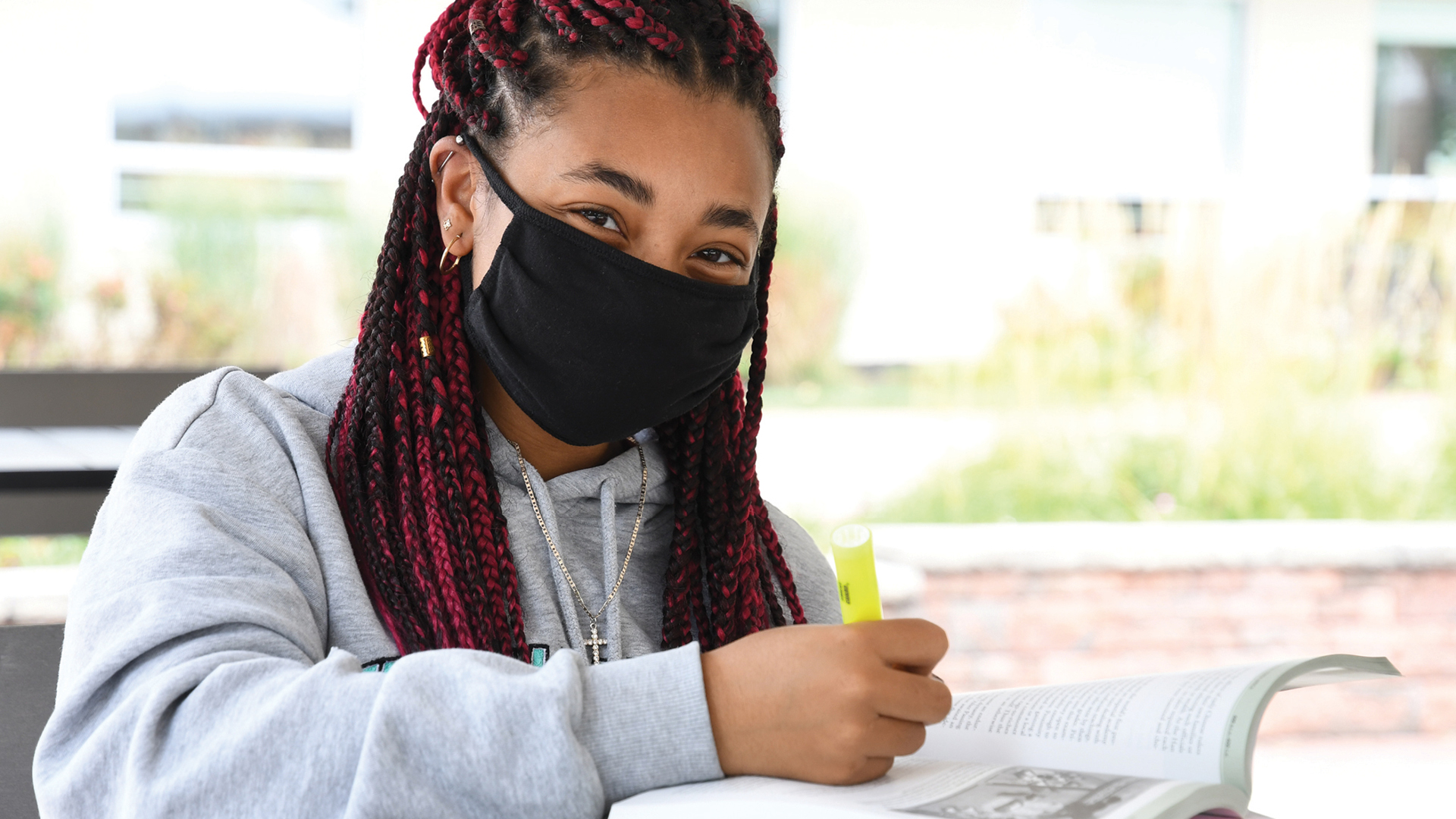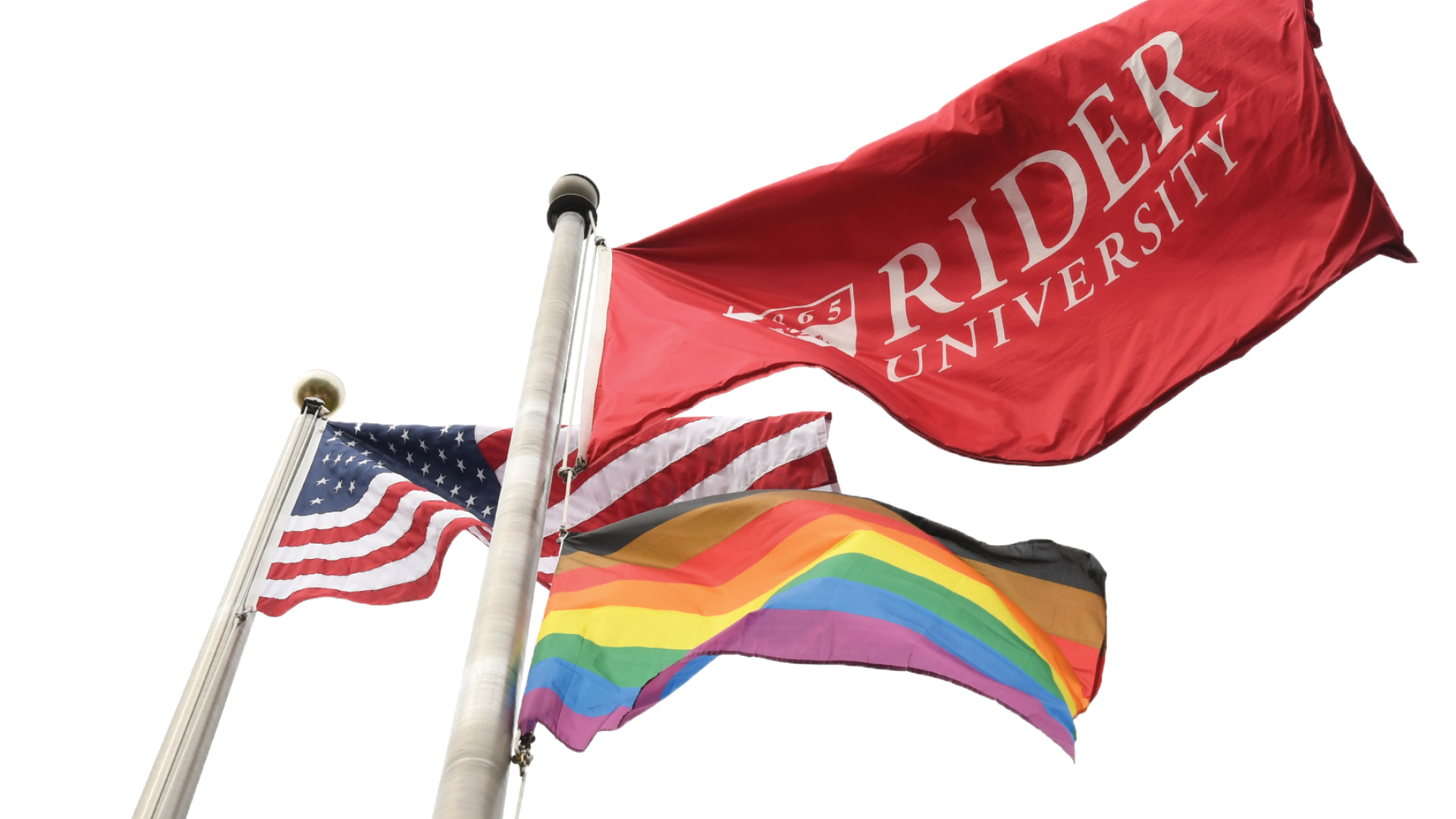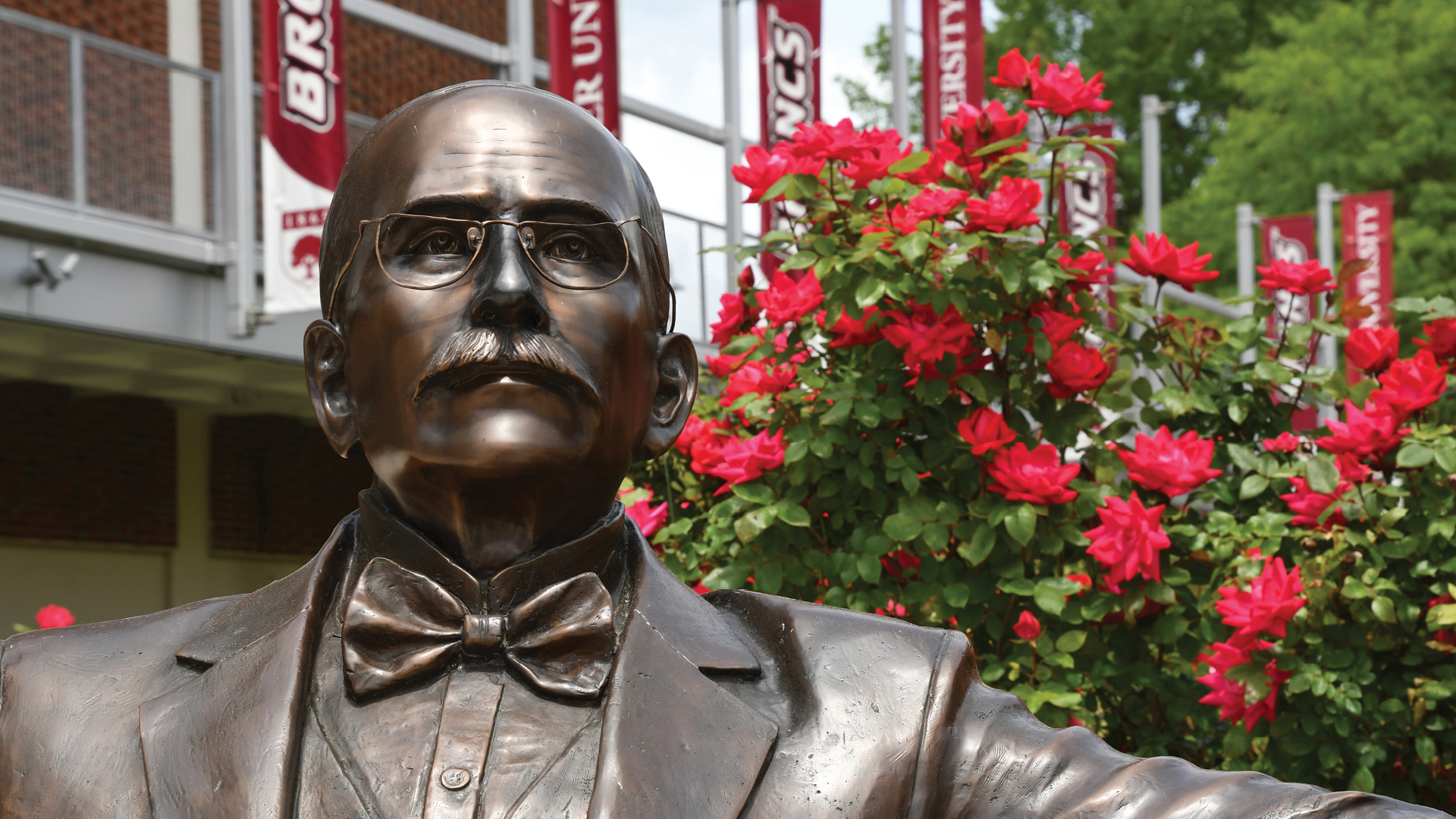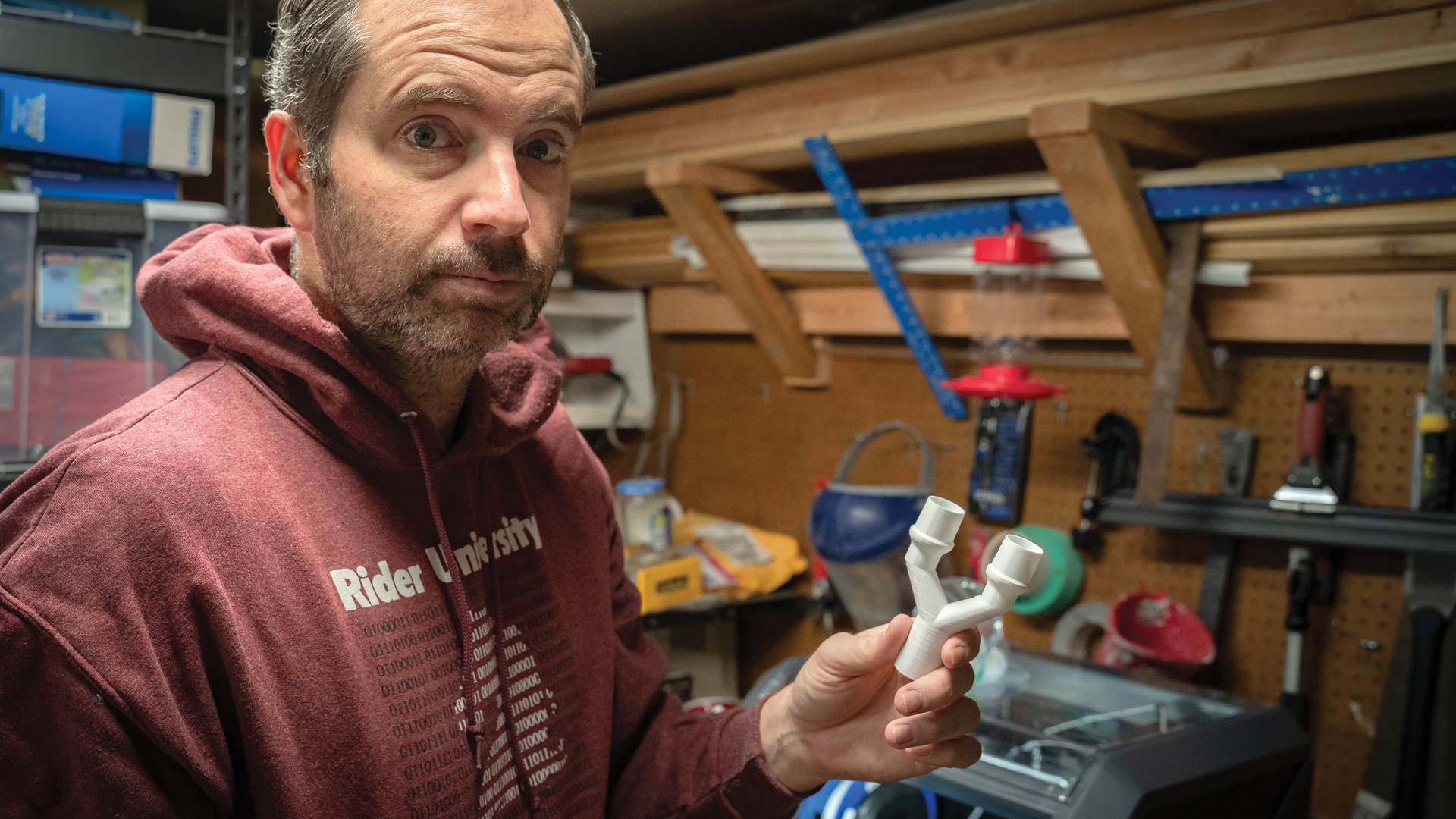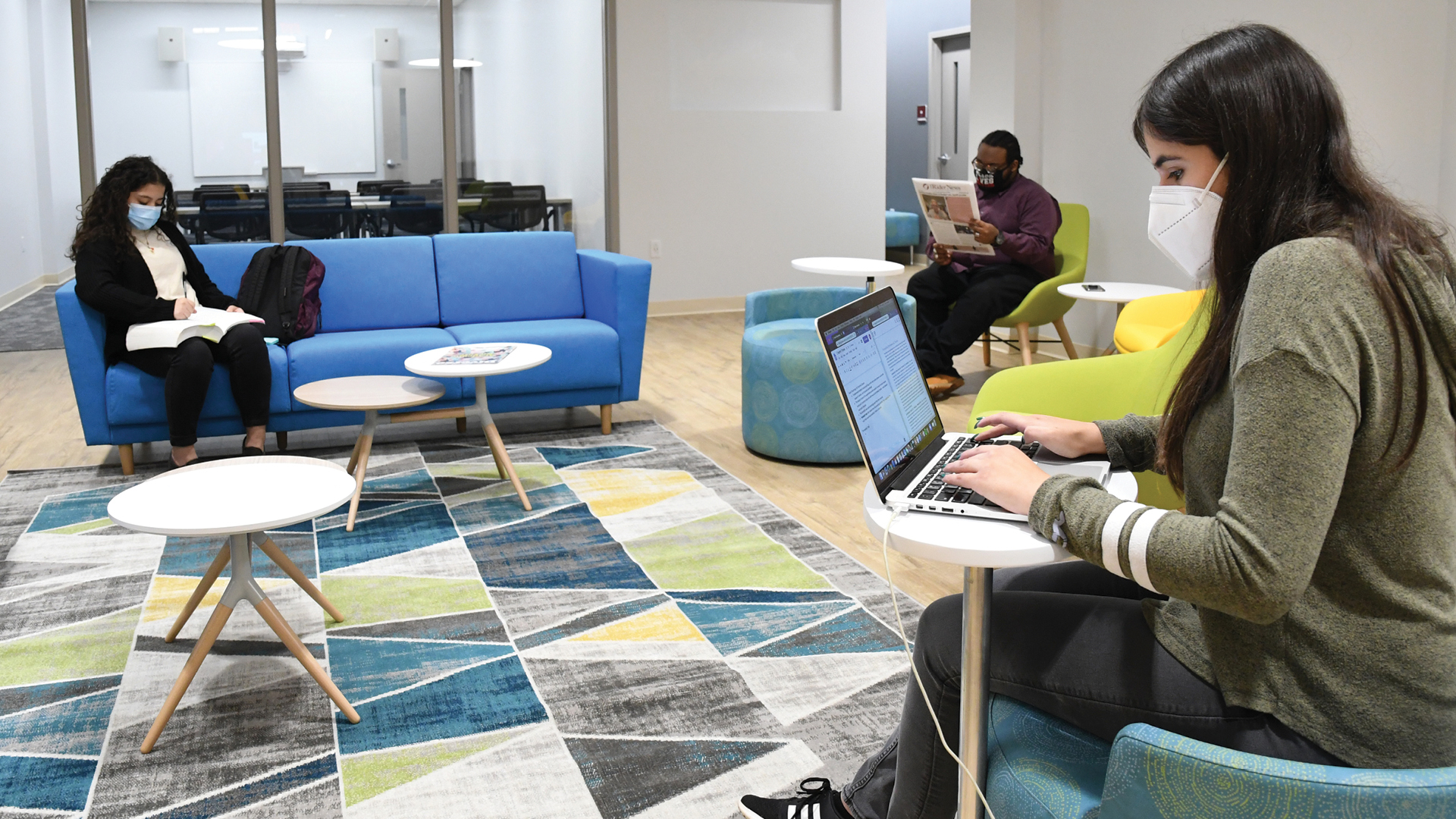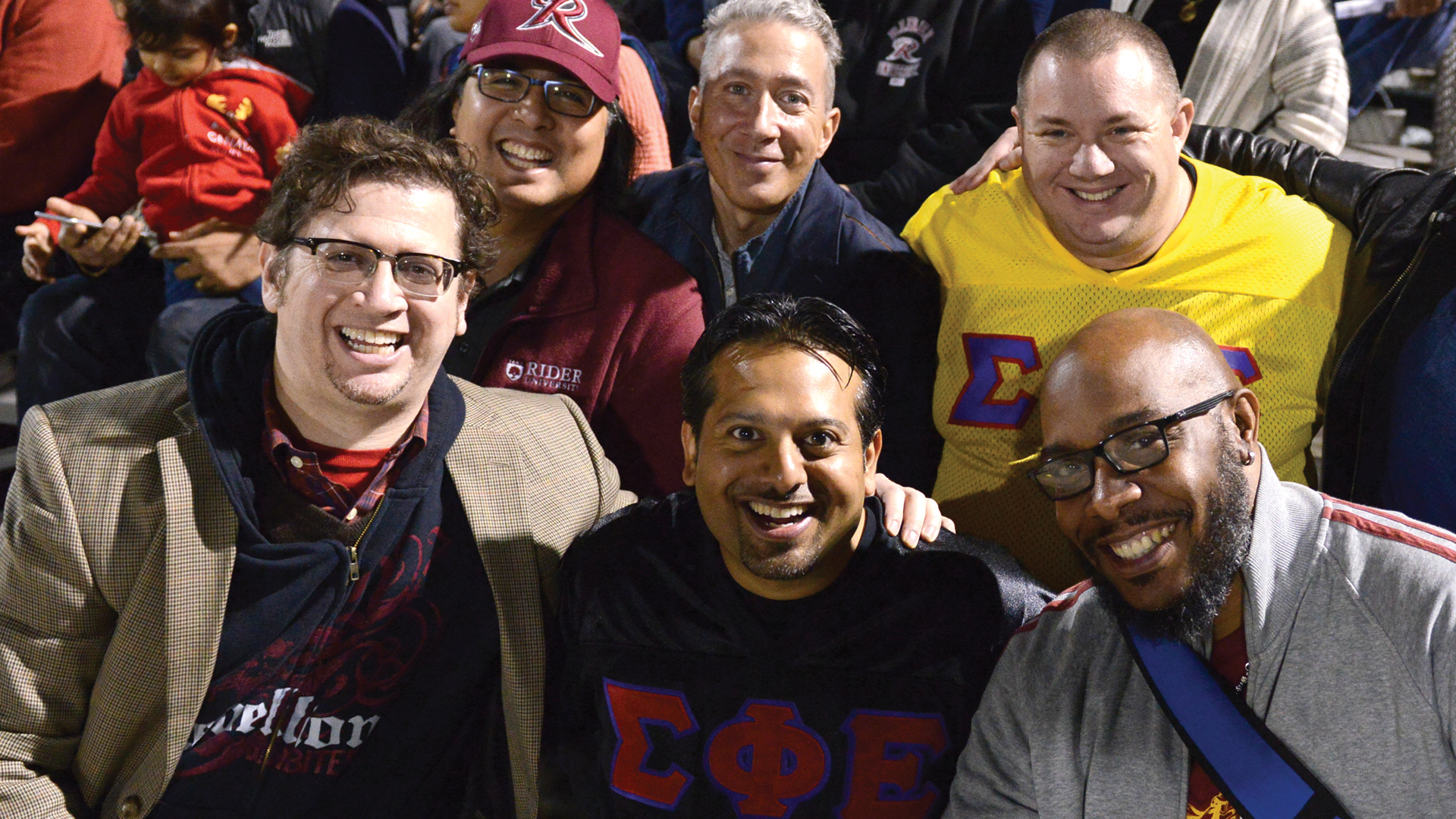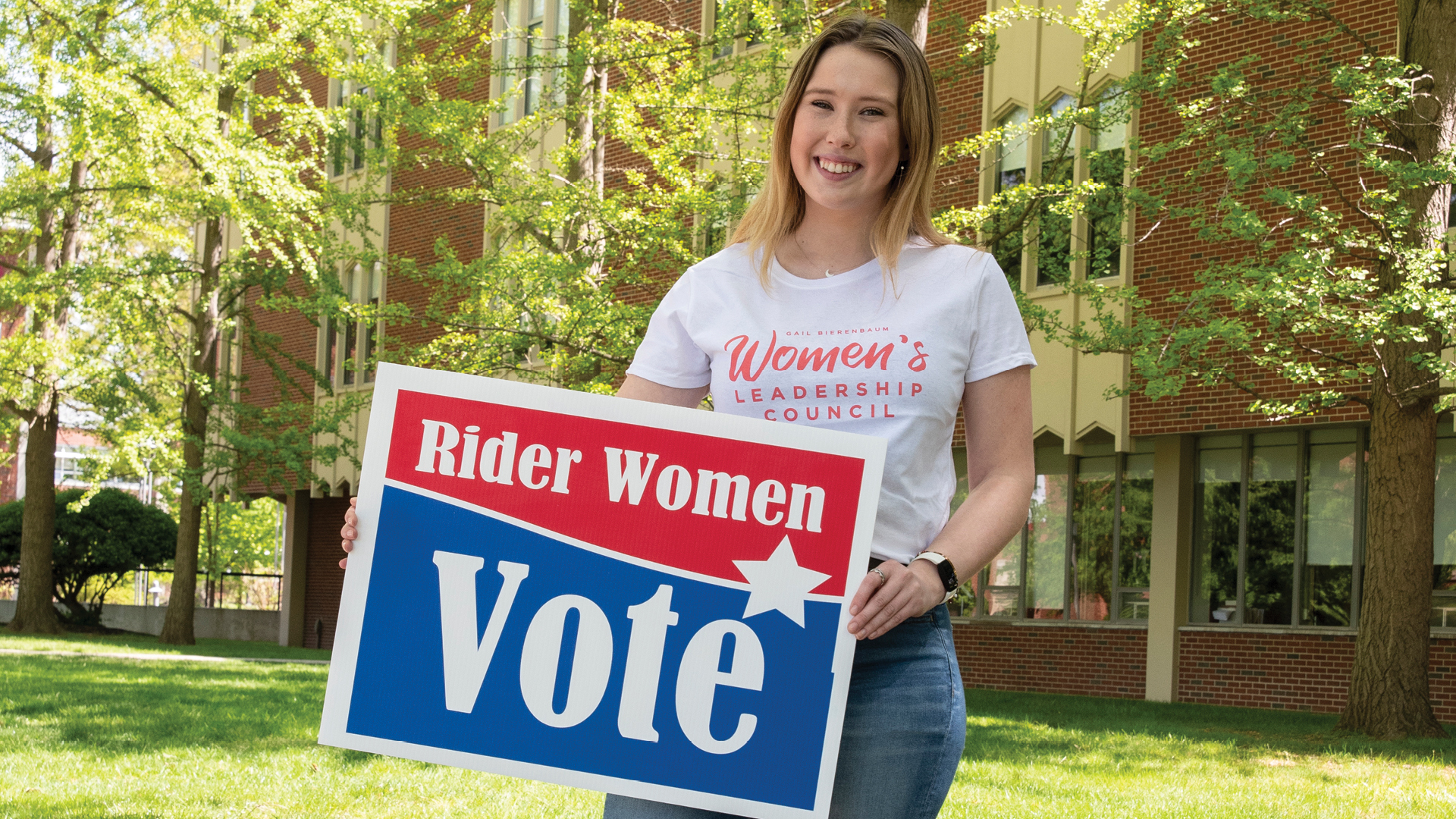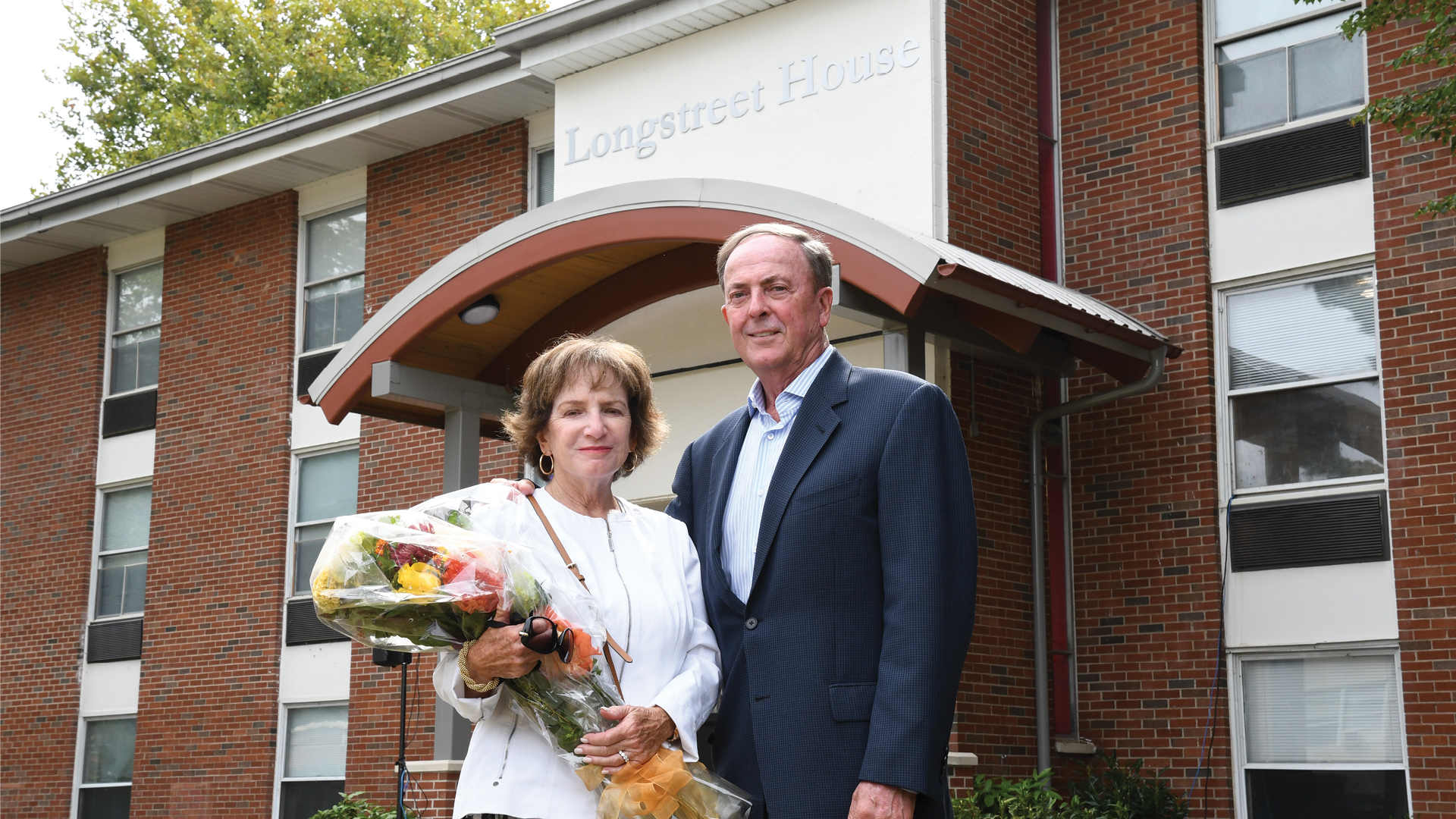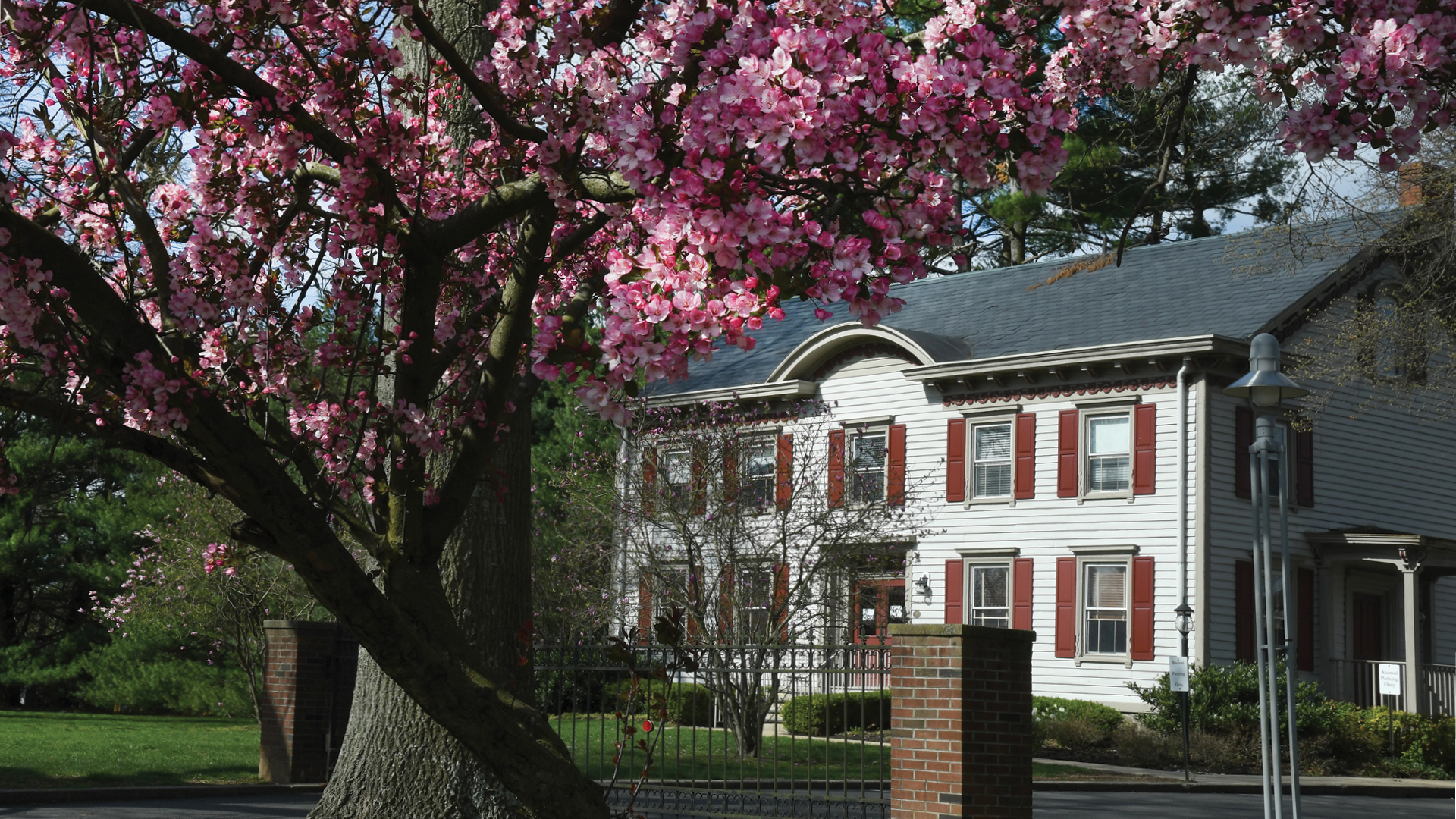Meet Rider 2024
More than 850 first-year Rider students began the school year this fall, their faith in the promise of a college education undiminished despite the highly unusual circumstances wrought by the coronavirus pandemic.
This fall, the majority of classes are being delivered remotely and residential capacity on campus is limited. Displaying a strong ability to adapt, student engagement has remained high, with most traditional fall programming, including welcome events and campus traditions, moving to virtual programming.
In total, the Class of 2024 represents 23 U.S. states and territories. More than one in 10 students, or 12% of the entire class, have a family member who also attended Rider. Eighteen of those legacy students have more than one family member who attended Rider.
The class is roughly as diverse as last year’s class, which was Rider’s most diverse in its history. About one of every two students, or 49%, come from underrepresented groups. About 40% of Rider’s entire student body is now made up of students of color.
This is in addition to the representation of other diverse identities, including 33% first-generation, 36% low-income, 16% students with disabilities, a diverse representation of religious affiliation and a significant presence of students who identify as LGBTQ+.
Campus pride
Rider is one of only 381 campuses in the U.S. rated by the Campus Pride Index, a national listing of LGBTQ+ friendly colleges and universities. This summer, the University received four out of five stars on the index, an increase from a previous 3.5 out of five stars.
Big tally
Amidst national economic, public health and social justice crises, the Rider community continued to demonstrate strong support for the University’s mission and its students last fiscal year by raising more than $18.4 million for scholarships, the Annual Fund, academic programs, athletics and improvements to campus facilities.
Stepping up, giving back
Last spring, with the outbreak of COVID-19, members of the Rider community sprung into action to support their local communities and one another. Shortly after Gov. Phil Murphy signed an executive order to close all non-essential businesses and ordered residents to stay home, Associate Professor Dr. John Bochanski and Westminster Choir College alumnus Jacob Ezzo '14 put their 3D printers into action. Bochanski printed ventilator splitters, which allow two patients to be connected to the same ventilator in case of a shortage. Ezzo printed and assembled face shields for local members of the medical community.
To help alleviate the shortage of hand sanitizer, a group of Rider science faculty worked together to produce the virus- and bacteria-killing substance in the University’s general chemistry lab and donated it to local hospitals. Dr. Jamie Ludwig, an assistant professor of chemistry, produced the first batch at the urging of Dr. Danielle Jacobs, an associate professor of chemistry.
Several Broncs also helped their local communities as food insecurity grew. Shariq Marshall '18, operations and volunteer coordinator for Arm In Arm, and Allison Anderson '20 packed bags of food staples for Mercer County residents, while senior Giavanna Troilo worked as a multimedia intern at Food Bank of South Jersey, helping to connect residents with available food. Rider's and Gourmet Dining's partnership with Meals on Wheels of Mercer County never missed a beat since the pandemic began. Matthew Hernberg '20 started a delivery business to help those unable to shop in his South Jersey community.
Welcome to Lawrenceville
This fall, Westminster Choir College began a new chapter, with students living and learning solely on Rider’s Lawrenceville campus for the first time ever. This historic moment marked the first time the Choir College has been fully integrated within the University’s main campus since Rider and Westminster affiliated in 1992.
The pandemic has had significant effects on the Choir College. Among them, the Westminster Choir is taking a one-year hiatus for the first time ever, and many other activities and concerts have been canceled or altered. Despite these challenges, many milestones integral to the campus transition were achieved, including major construction completed on several facilities projects.
Faculty studios are now located in Omega House. A new music computing lab opened inside Daly's. Talbott Library now occupies the top two floors of Moore Library, with a new circulation desk specifically for Talbott's resources and materials. The new Presser Voice Lab is complete inside the Fine Arts Center. The Casavant organ, also known as the Scheide Organ, was relocated to Gill Chapel — a centerpiece of a major renovation project that also includes a new performing and rehearsal space, many large and small practice rooms, worship spaces, and more.
Speaking of the vision for Westminster in its new home, Provost and Vice President for Academic Affairs DonnaJean Fredeen, Ph.D., says, “I believe this new living and learning environment has the potential to become a place of comfort — a home — for a new generation of Westminster students as new experiences intermingle with Westminster traditions, and fresh memories take hold.”
Open for all
In September, Rider opened a new space in the Bart Luedeke Center dedicated to the University’s Center for Diversity and Inclusion. The Center provides support for multicultural clubs and student organizations, encourages a sense of belonging for underrepresented, marginalized and/or underresourced students, and promotes education and community around issues of inclusion for all members of the Rider community. The Center’s opening completes an important initial objective of Rider’s Inclusive Excellence Plan.
Remembering a fellow Bronc
Pictured left, Tony Whalen ’97, an influential Rider alumnus, died on March 25 after becoming critically ill with coronavirus. He is the first known member of the Rider community to die as a result of the COVID-19 outbreak. He was 45. Whalen was a founding member of the Sigma Phi Epsilon fraternity on Rider’s campus and a former president of the Student Government Association. He led the fundraising efforts that culminated in the construction of a gazebo near Centennial Lake.
The brothers of Sigma Phi Epsilon are producing a documentary, Tony Whalen: A Legend and Legacy, to be released next summer. If Whalen made an impact on your life and time at Rider, the producers want to hear from you. Please contact Wright Señeres ’97 at [email protected].
Editor-in-chief
Nina Rodriguez '17 became the first Latina to ever hold the position of editor-in-chief of the Rutgers University Law Review in Camden when she was appointed in April. At Rider, she majored in political science and minored in Spanish. She interned at her local congressman's office, the legislative offices of Rep. Herb Conaway, and was the first member of her family to graduate from college.
19th Amendment
In celebration of the 100th anniversary of the ratification of the 19th Amendment to the U.S. Constitution and women obtaining the right to vote, the Gail Bierenbaum Leadership Council at Rider University released The Rider University Women’s Suffrage Centennial Cookbook in August. Assembled in the tradition of the suffragist cookbooks of the late 19th and early 20th centuries, Rider’s cookbook honors the courage and accomplishments of the suffragists and offers the personal messages of contemporary women on the importance of voting and being an engaged citizen.
$1 million
Dennis Longstreet ’69 committed $1 million to support the recently completed renovation and future maintenance of Ridge House, one of the University’s student residence buildings. In gratitude and recognition of the gift, the University held an outdoor ceremony on Sept. 24 to formally name the building Longstreet House in his honor. Shown with Longstreet is his wife, Linda.
Historical markers
A new task force charged with proactively researching the Rider's historical relationship and connection with slavery and enslaved people was formed this fall. Rider is already aware of one such connection. Van Cleve Alumni House, located at the front of campus, is named after Benjamin Van Cleve, one of the earliest known owners of what is now the Lawrenceville campus property. Born in 1739, he fought in the Revolutionary War and was later a member of the state legislature and a judge. According to tax records, he also owned at least one enslaved person. Recommendations on possible actions are forthcoming.
Best college
Rider University was once again named to U.S. News and World Report's Best Colleges list and to the 2021 The Wall Street Journal / Times Higher Education College Rankings. Rider earned the No. 38 spot on the list of best regional universities in the north from U.S. News. The Wall Street Journal ranked Rider among the top 310 colleges in the country and in the top half of colleges in the Northeast region. The University earned additional accolades from U.S. News in the north region, ranking as the No. 27 best value school among regional universities in the north. It was also recognized for its undergraduate business program and as a top performer on social mobility.

